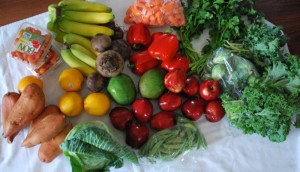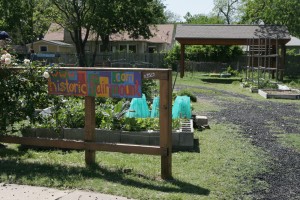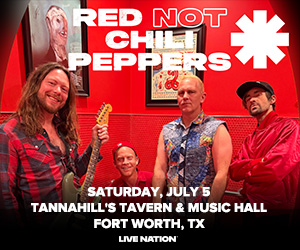Driving his blue Chevrolet pickup truck around his leased ranch, Jon Taggart was a man on a mission. The tall, slender rancher’s voice shook as he talked passionately about grass-fed cattle.
The truck was covered in mud from recent rains. “They say cowboy heaven is sunshine on mud,” he said, laughing.
For Jon and Wendy, words like sustainable, organic, and grass-fed aren’t just marketing ploys or calls to action by starry-eyed hippies. The Taggarts aren’t likely to be confused with hippies. Jon looks every bit the part of a rancher, though he sounds more like a science teacher when he talks about his job.
Feeding their cows exclusively on grass makes the most economic sense, he explained. “I’m on a personal crusade to teach people the true meaning of word ‘sustainability,’ ” he said. “This operation is truly sustainable. I mean environmentally, economically, and personally.”
His ranch makes money because he doesn’t spend anything on what he calls “inputs,” meaning things like feed and pesticides. In a nutshell, he lets the grass grow and makes sure his black Angus cows don’t over-graze, moving them from pasture to pasture when the natural supply of switchgrass and other native grasses looks depleted.
“If you just pay attention to Mother Nature, she knows what she’s doing,” Jon said. The native grasses are “what the cows prefer to eat” — he called it “ice cream for cows.”
The Taggarts have been ranching all their lives. While living in Fort Worth, the couple worked on area ranches. They moved to Grandview in 1999 and decided to start their own business.

“I told my husband one day, ‘Here we are on this 1,500-acre ranch, knee-deep in grass,’ ” she said. “ ‘You know I’ve been reading about this grass-fed beef. … I want to try it.’ ”
Wendy said she handed out samples of her beef to area restaurants, grocers, and others in the food business. Those original customers started buying directly from the couple. In 2004, the Taggarts opened a store four miles from the ranch.
“I would take it to town and give it out,” she said. “The timing was good because there was this growing trend of much more sophisticated food consumers.”
Bonnell, who now owns a second restaurant, Waters, in addition to his original Bonnell’s Fine Texas Cuisine, sought out the Taggarts because of their reputation.
“Jon and Wendy Taggart … they raise those animals themselves,” he said. “They study the animals, they take it personally, they take the time and the care to do it right, the animals are fed 100 percent grass diet, they are healthier. And if I ever have a problem with it, I can call Jon and he’ll fix it.”
When Bonnell opened his first restaurant, he was a pioneer in using local products. There weren’t many farmers selling directly to restaurants, he said.
“It’s become trendy in the last couple of years, but it’s what we’ve always done,” he said. “Chefs have been doing it for years. I’ve always wanted local produce, cheeses, meats, and eggs — whatever we can get.”
The locavore movement has taken hold because “a lot of people are getting a little sensitive as to where food actually comes from,” Bonnell said, citing the numerous books that have been written on the subject of healthy eating.
Besides supporting local farmers, the produce he buys is “just higher quality,” he said. “It tastes better; more care has gone into raising it.”

The menu at Bonnell’s is about 60 to 70 percent locally sourced. “The tough thing is that the local guys aren’t massive, so they can’t supply you all the time with everything you need,” he said.
At Potager, Chippindale keeps an impressive Rolodex of farmers and artisans in her head.
“The chickens are from Taylor Cooper who has livestock up in Sherman,” she said. “Our beef is from Wendy and Jon Taggart of Burgundy Pasture Beef in Grandview; lamb is from Clinton Hodges at Sterling Lamb in West Texas, veggies from Farmer John at the farmers market … .”
In a way, Chippindale opened Potager to promote the locavore movement.
“People had no idea where they got their food from,” she said. “And they didn’t even care, which was heartbreaking.”
In addition to locally sourced produce and meats, Potager has its own garden of herbs and also grows some lettuce and cabbage.
“The purpose of the garden is to show people they should get rid of that useless grass that takes up too much water and plant things that are edible,” Chippindale said. “I want people to get acquainted with where their food comes from, and if it can come from their own backyard, then go for it.”
She said she’s converted many of what she calls “old curmudgeons.”
“You can tell they have been dragged there against their will,” she said. “And when they see that sign in my restaurant that says ‘natural foods,’ they think they are going to have to eat bean burgers.
Instead, “[T]hey find that they are getting pot roast and fresh apple pie,” she said. “And suddenly their conception of what a locavore movement is has drastically changed. … They become a part of the movement too.”
Chippindale said her food has helped several customers restore their health. “Some people who come into my restaurant are suffering, and my place is the only place they feel safe to eat,” she said. “People are tired of being sick.”
********
In 2008, Texas Christian University Chancellor Andrew Schoolmaster issued a challenge to Fort Worth South Inc. to create an urban garden. The organization’s director, Paul Paine, recruited gardening enthusiast Susan Harper to make the urban garden a reality. In May 2010, the garden finally opened.
The city gave her group of gardeners three Southside lots, and Harper turned them into 75 separate 4’ x 8’ garden plots, which she rents for $35 a year. Right now, she said, all of them are rented out.
The Fairmount Garden was the first of its kind in Fort Worth, but the Tarrant Area Food Bank and Tarrant County health department have spearheaded about 30 more gardens. All of the vegetables grown in one of the gardens will be donated to the Tarrant Area Food Bank.
Every day, Harper said, people come before and after work to tend their gardens.
“It’s cool to watch,” she said. “We’ve had some fantastic successes and glorious failures. Squash bugs are terrible critters.”
The gardeners recently built a coop for egg-producing hens.
“We’re just an adventuresome group,” she said.











